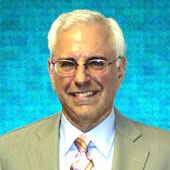Vladimir Monroe and the Failure of Leadership
Are Russian foreign policy interests relying on outdated models?
December 22, 2004
If you ask most Americans to name an accomplishment of James Monroe, the fifth President of the United States (1817-1825), the first thing that would probably come to mind is the Monroe Doctrine.
If you pressed further and asked what the Monroe Doctrine was, they might tell you that it had to do with South America.
Depending upon their age they might even remember that it was invoked as recently as during the Cuban Missile Crisis in the early 1960s.
However, if you asked that same person to define the doctrine, you would probably get a blank stare.
In fact, the Monroe Doctrine was part of an address that President Monroe gave in 1823, in which he stated that any effort to extend European political influence into the New World would be considered by the United States “as dangerous to our peace and safety.”
President Monroe thus openly implied that Latin America belonged to the U.S. sphere of influence — and that no other power had the right to be a dominant player in the Americas.
Almost two centuries later, the principles of Monroe's famous doctrine are now being played out in Eastern Europe. Russia — resurgent thanks to its vast energy wealth — believes that it has Monroe-like rights over the countries known to Russians as the "near abroad."
These are the countries that were part of the Soviet Union, where — even more than a decade after the break-up of the Soviet Union — Russian culture is still a force, economic relations are primarily still with Russia and the sole energy supplier is Russia.
For the first time since the establishment of the new Russian Federation, political events in the countries that once were a formal part of the Soviet Union are challenging Moscow's version of the Monroe doctrine.
In Ukraine, the nearest of Russia's near abroad, a president — former Prime Minister Viktor Yushchenko — could be chosen in December 26, 2004, who believes that it is in Ukraine's interest to be more a part of Europe than Russia.
Russia also feels threatened by Mr. Yushchenko's advocacy in favor of Ukraine joining NATO. What complicates the matter further is that, to many Russians, Ukraine is not just any other country, but one whose history is closely entangled with Russia.
The Ukrainian capital Kiev was the first capital of Russ (the forerunner of Russia) from approximately the 10th to the 13th century. In fact the Russkaia Pravda, the first Russian law code that separated Russian culture from Byzantine precedent, was written there.
In order to prevent Mr. Yushchenko from winning, Russia's President Vladimir Putin twice traveled to the Ukraine to campaign against him. The Russian government arranged financing for the candidate they favored — and in essence did whatever it could to secure a victory for the pro-Russian candidate.
Monroe, and especially his doctrinal descendent Teddy Roosevelt, would have been very proud of their student Vladimir.
Mr. Putin, however — caught up in his Russian world of internal change management and also as a child of his own culture — failed to realize that the Monroe Doctrine and with it the concept of spheres of influence is not applicable or doable in 2004.
Globalization, terrorism, the success of the Central European states as well as military technology have all rendered the concept of buffer states an anachronism.
Yet for Russia, a country that has a historic right to worry about foreign invaders from the West, a Monroe Doctrine-like approach — although never truly successful — continues to be very appealing.
Thus in Russia today, advocating a policy modeled after the Monroe Doctrine is the easiest course of leadership, since it appeals to powerful domestic interest groups and also reflects Russians' general sentiment.
It takes an extraordinary politician to convince the various groups within the Russian political space that the old myths about the near abroad, buffer states and Russian exceptionalism are as antiquated as the Monroe Doctrine.
Any objective look at Russia today shows that the Cold War fears about NATO expansion — and the containment of Russia by the West — really are not relevant anymore in the age of globalization.
But in the rough-and-tumble world of Russian politics, it is much easier for President Putin to acquiesce to conservative sentiments rather than risking his reputation and support to refute them.
And yet, that is the challenge that he — and Russia as a whole — faces. After 700 years of totalitarianism and a foreign policy that such totalitarianism creates, we would all do well to realize just how tough that task really is.
As the Russian people are going through the trials and tribulations of learning to become a liberal society, much will depend on a constructive and supportive stance by the West.
On the one hand, Russia needs partners who are clear in articulating the illusionary appeal of buffer states in this century. On the other hand, these partners also need to understand — and appreciate — the internal conflict between political realities and historic perceptions.
In that sense, it is not just Russia, but also its Western partners, who are walking on a tightrope.
Read previous
Soybeans — The New King of the Crop?
December 21, 2004
